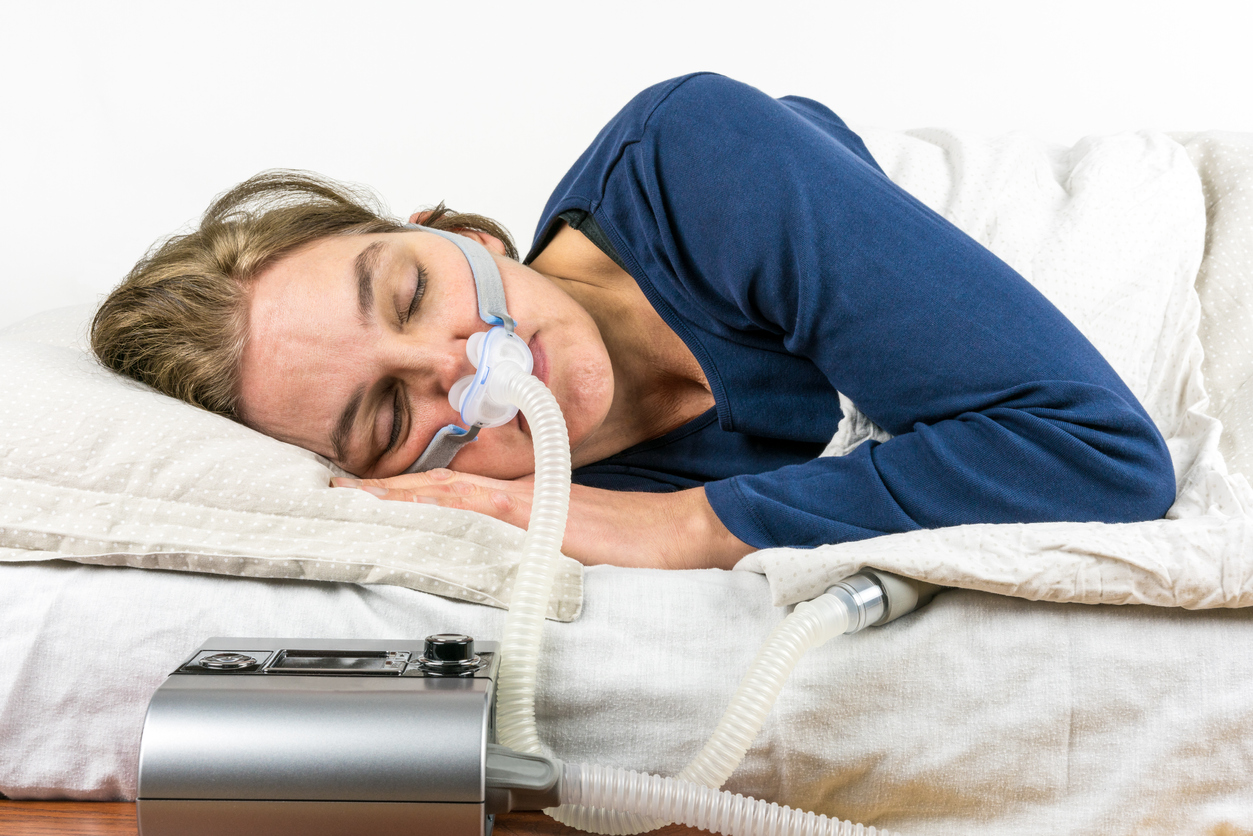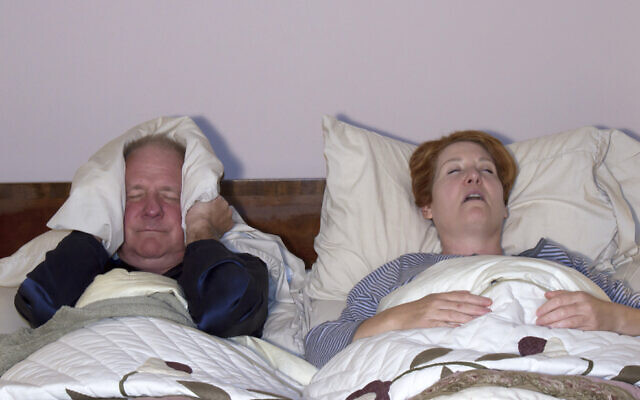Doctors often don’t ask about snoring, and patients are embarrassed to raise issue, meaning many miss getting a diagnosis of sleep apnea, which can lead to illness and even death
Medical professionals around the world could save lives and reduce illness by taking more interest in snoring among their post-menopausal female patients, Israeli researchers said.
There is a massive phenomenon of undetected sleep apnea among women, according to a peer-reviewed study published in the Journal of Clinical Medicine. It’s most common among post-menopausal women, induced by hormonal changes.
According to Prof. Ilana Eli of Tel Aviv University, who led the research, it happens because women are reticent to tell doctors they snore. They feel it’s not feminine, but they are endangering their health by doing so, as snoring is a risk factor for sleep apnea, she said.
And given that sleep apnea can be a serious sleep disorder in which breathing repeatedly stops and starts, causing illness and in some cases death, this is worrying, she stressed. Sleep apnea can lead to adverse medical conditions, such as cardiovascular events, hypertension, heart attack, and stroke
Eli, a dental professor and expert in sleep disturbance, found that around 1 in 10 women aged 55-plus who snore develop sleep apnea — many more than among younger women — but only a tiny proportion of them are diagnosed, meaning many lack treatment, which is sometimes a relatively simple process of administering oxygen at night time.
“Many women wrongly think that it’s not befitting to a woman to admit to snoring,” said Eli. “But it’s important medical information, and there are great benefits to doctors becoming more focussed on snoring, and asking post-menopausal women if they snore.”

Post-menopausal woman who have sleep apnea often suffer from unexplained fatigue, headaches, muscle soreness upon waking, and sleep problems. For some, telling a doctor about snoring can help them piece together complaints and understand that sleep apnea is at the root of the problem, said Eli.
She commented: “The lack of early diagnosis is particularly noticeable in one of the target demographic groups: women over the age of 50, who suffer from an increase in the incidence of sleep-disordered breathing due to hormonal changes that occur during menopause. We wanted to examine and characterize the phenomenon in this group in order to raise a red flag when necessary.”
Eli and her colleagues wrote in their research that dentists, not generally involved in detecting sleep apnea today, should be asked to spot cases of sleep apnea in addition to doctors.
They suggested: “Expanding the focus of dental diagnosis beyond the oral cavity and paying attention to common daily symptoms, such as SB [sleep bruxism or teeth grinding], snoring, muscle stiffness, or headaches upon awakening, can help dentists to detect initial signs of OSA [sleep apnea].”
“This is especially important in middle-aged women who might not be aware of the medical risks involved and who often do not volunteer such information to their caregivers,” the wrote.


